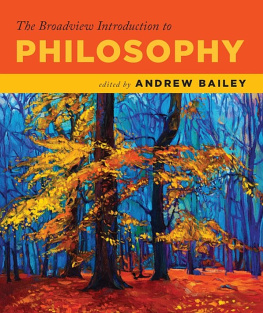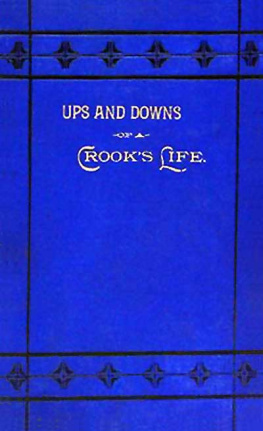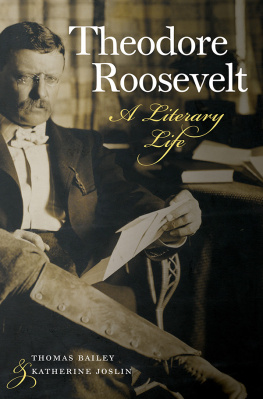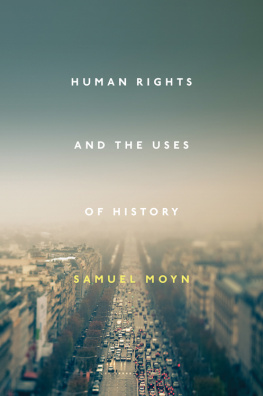Samuel Bailey - Letters on the Philosophy of the Human Mind (Volume 2)
Here you can read online Samuel Bailey - Letters on the Philosophy of the Human Mind (Volume 2) full text of the book (entire story) in english for free. Download pdf and epub, get meaning, cover and reviews about this ebook. year: 2010, publisher: Unknown, genre: Religion. Description of the work, (preface) as well as reviews are available. Best literature library LitArk.com created for fans of good reading and offers a wide selection of genres:
Romance novel
Science fiction
Adventure
Detective
Science
History
Home and family
Prose
Art
Politics
Computer
Non-fiction
Religion
Business
Children
Humor
Choose a favorite category and find really read worthwhile books. Enjoy immersion in the world of imagination, feel the emotions of the characters or learn something new for yourself, make an fascinating discovery.

- Book:Letters on the Philosophy of the Human Mind (Volume 2)
- Author:
- Publisher:Unknown
- Genre:
- Year:2010
- Rating:3 / 5
- Favourites:Add to favourites
- Your mark:
- 60
- 1
- 2
- 3
- 4
- 5
Letters on the Philosophy of the Human Mind (Volume 2): summary, description and annotation
We offer to read an annotation, description, summary or preface (depends on what the author of the book "Letters on the Philosophy of the Human Mind (Volume 2)" wrote himself). If you haven't found the necessary information about the book — write in the comments, we will try to find it.
Letters on the Philosophy of the Human Mind (Volume 2) — read online for free the complete book (whole text) full work
Below is the text of the book, divided by pages. System saving the place of the last page read, allows you to conveniently read the book "Letters on the Philosophy of the Human Mind (Volume 2)" online for free, without having to search again every time where you left off. Put a bookmark, and you can go to the page where you finished reading at any time.
Font size:
Interval:
Bookmark:

This is a digital copy of a book that was preserved for generations on library shelves before it was carefully scanned by Google as part of a project to make the world's books discoverable online. See the back of the book for detailed information.
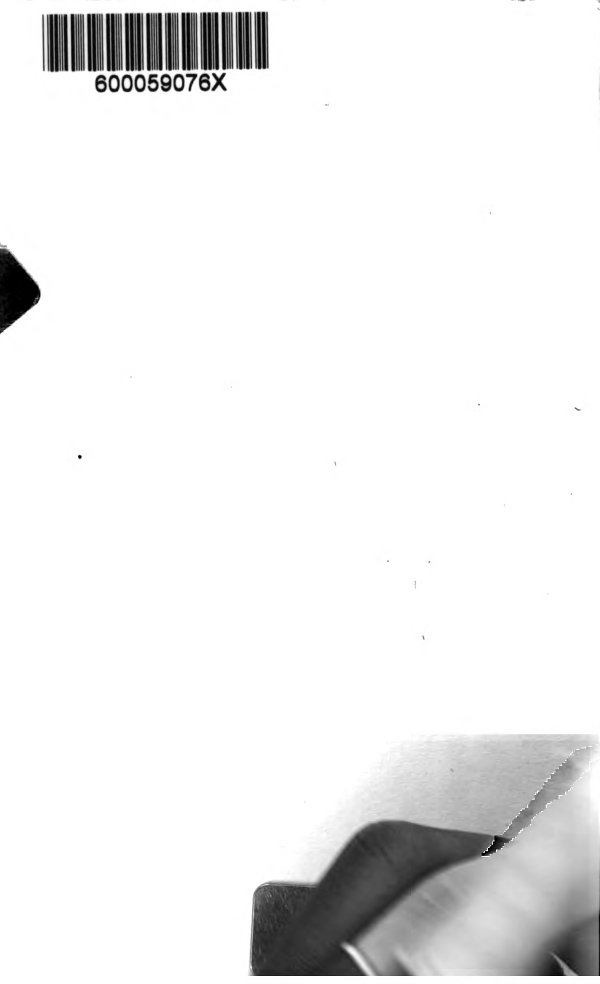
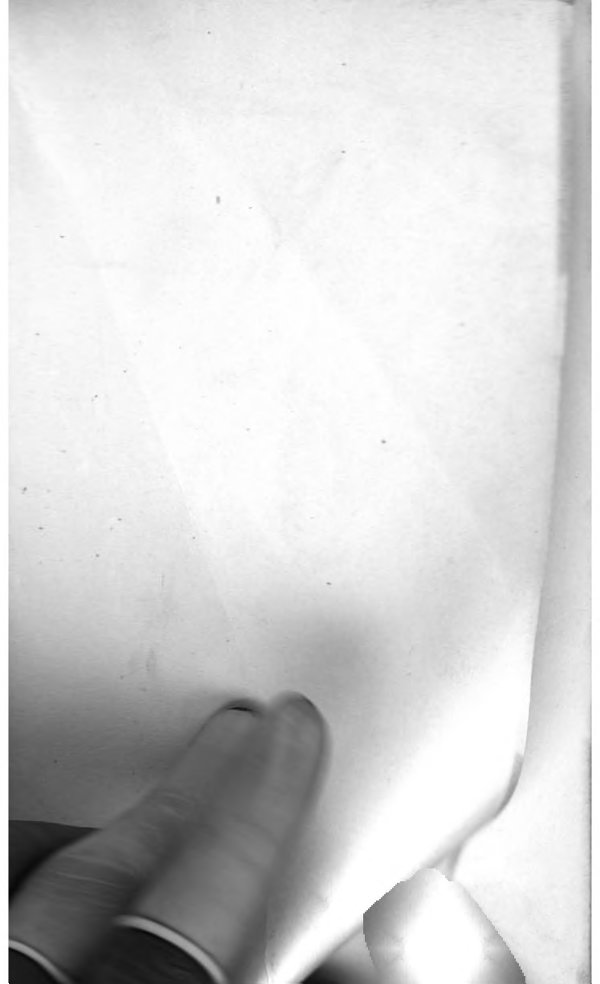

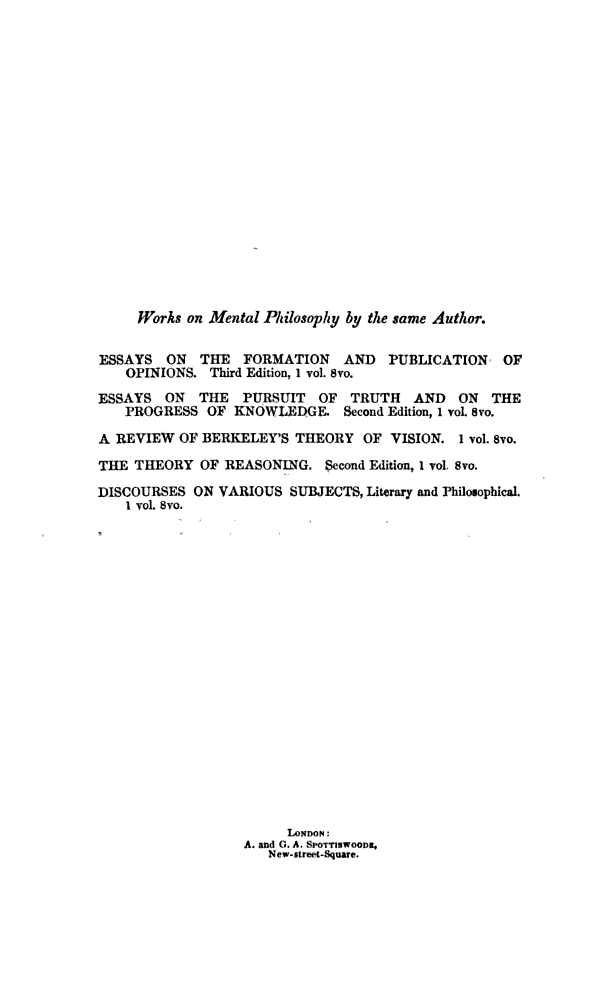
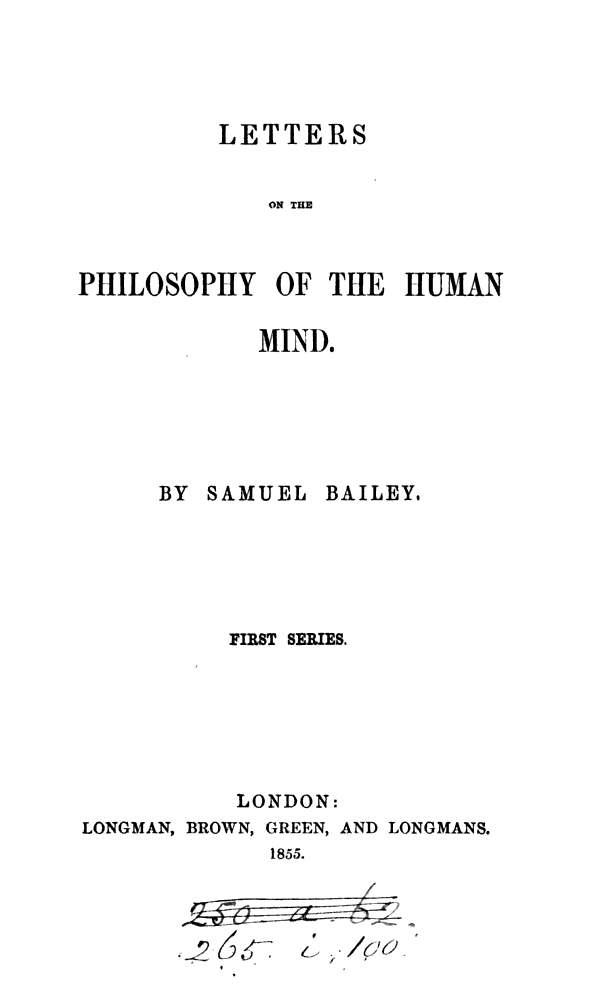
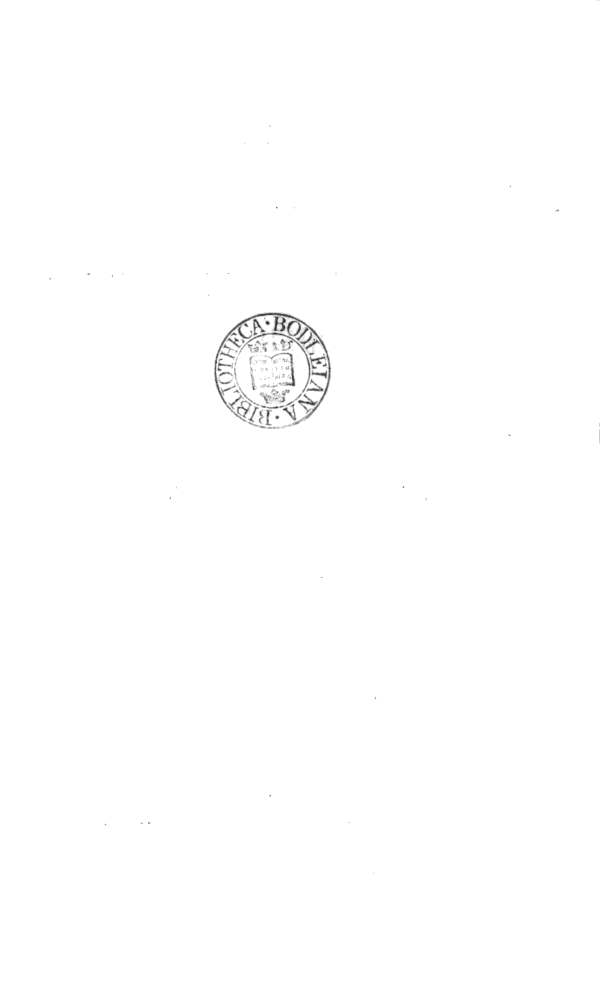
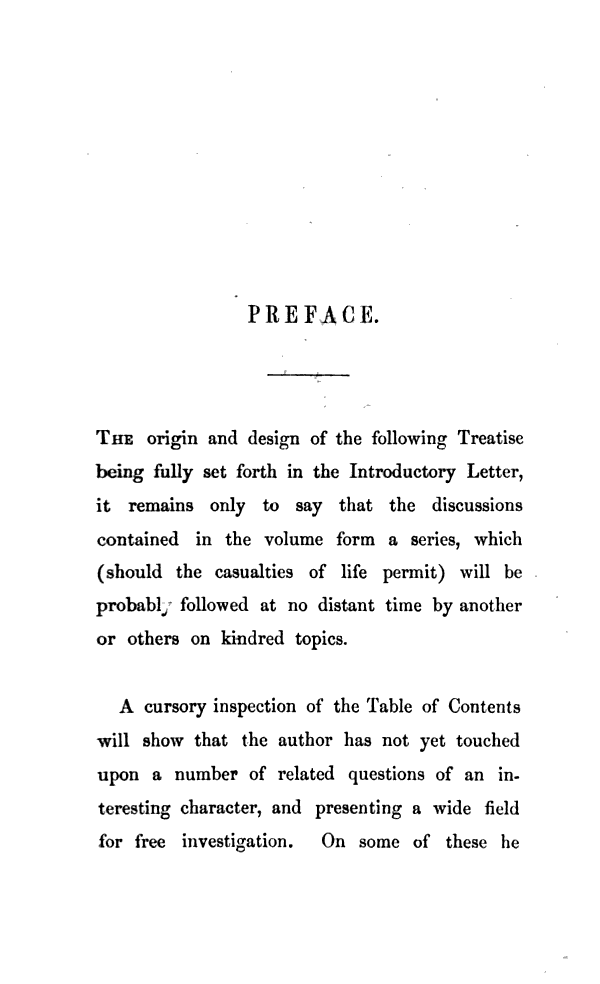
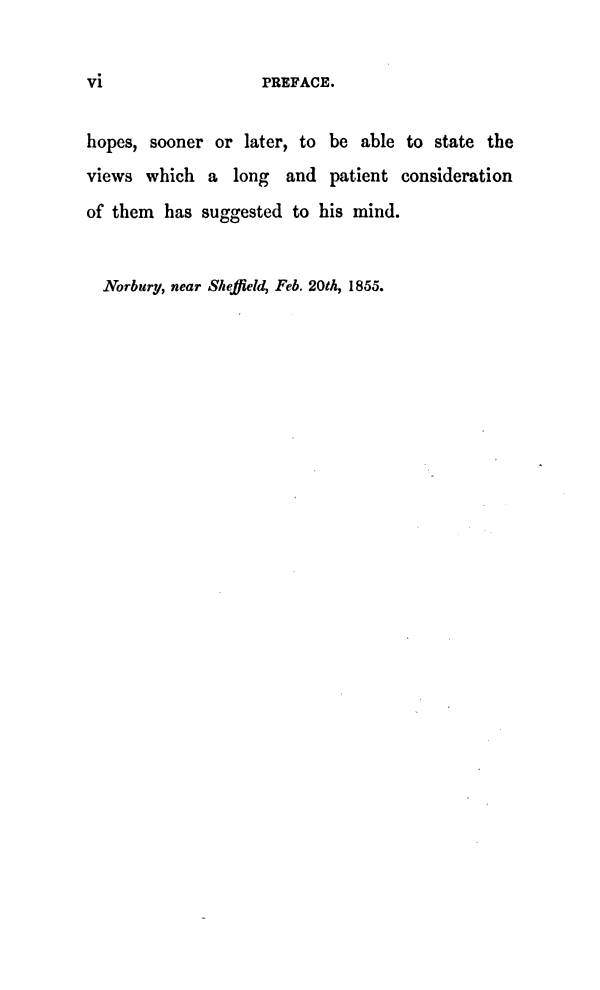
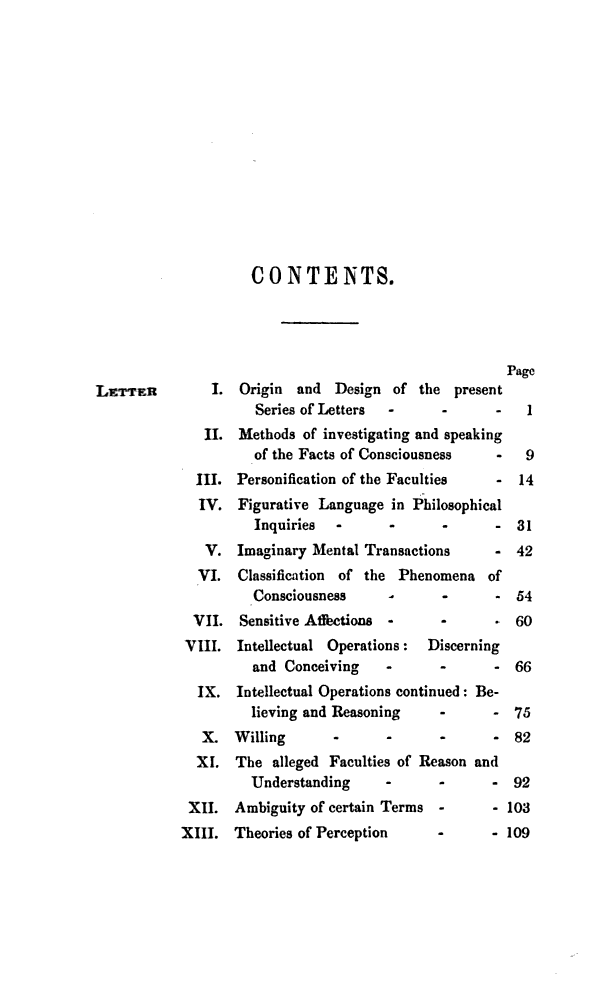
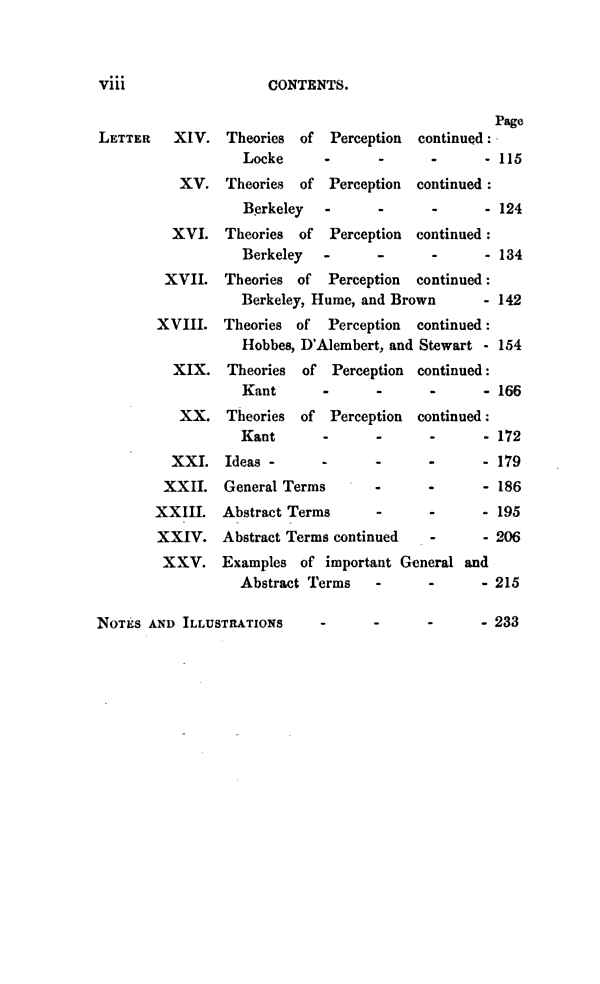
LETTERS
PHILOSOPHY OF THE HUMAN MIND.
LETTER I.
ORIGIN AND DESIGN OF THE PRESENT SERIES OK LETTERS.
My Dear Friend,
You have frequently expressed a wish that I would give you, and eventually the public, a methodical exposition of those views in the Philosophy of the Human Mind which we have so repeatedly, although informally, discussed together. Against this I can urge neither want of leisure nor want of interest in the subject; and it would be an affectation of modesty to disclaim such an amount of qualification for the task as may be implied by an almost unintermitting meditation upon the principal questions of Philosophy during the greater part of a life which can no longer be termed brief.
The chief obstacle in the way of complying with your request is, I confess, want of adequate motive; or, if you will, that kind of mental indolence which is not seldom the fruit of it. The requisite materials are already in my mind, I may say, indeed, already stored in various manuscript volumes, although put down in detached memoranda without much method, finish, or connexion.
You know as well as myself the pleasure of mastering (in one's own fancy at least) difficult and interesting subjects, and discussing them in the desultory way of random notes or friendly conversation; but the process of reducing such speculations to order and precise expression digesting them, as it is significantly termed, into a methodical treatise connecting the disparted, marshalling the disorderly, supplying the deficient, labouring at transitions, consulting authorities and verifying assertions and references constitutes altogether a very different affair. The delight of novelty and invention, of expatiating at will and skipping when convenient, is gone, and the drudgery of task-work succeeds. For this formidable labour some strong motive seems essential. You have named several; the hope of distinction as one, the prospect of enlightening the world as another you very wisely did not mention pecuniary profit as a third. But of attaining these ends I see small probability. With regard to the first, I do not apprehend that even the successful accom plishment of such a task would greatly extend the reputation, wide or narrow, which any author might before possess; and as for illuminating the world, to the difficulty of furnishing the light must be added the rather considerable impediment that the world is not sensible of being in the dark, and cares nothing for such elucidations. In a word, little effect would result in any way from the publication of a work which could hardly promise itself a score of readers. Where, then, is the inducement for undertaking what you propose? except it be that, taking ages into view, no earnest effort after truth on any subject can be regarded as altogether fruitless; and that the study of philosophy, although it will always be confined to a few, must not on that account be abandoned nor its results suppressed. At all events I have come to the resolution of partially at least acceding to your wishes. Without the formality of a regular treatise, I can, I think, succinctly explain in a series of letters addressed to yourself whatever is essential and peculiar in the views I entertain.
There is an objection in some minds to the treatment of such subjects otherwise than in formal discourses or dissertations. For my part I care little for the mere shape, and would have the philosopher indulge in any form that may happen to please his fancy, whether Essaj', Discourse, Dialogue, Lecture, or Epistle. If he has anything to communicate he will probably do it best in the way which his own taste prescribes: and, whatever that may be, the real method the arrangement of his thoughts will, with equal pains, be much the same. I never could enter into Mr. Stewart's objection to Home Tooke's throwing his etymological speculations into the form of dialogue. It was doubtless the mode best suited to the genius of the man.*
In this series of letters it is not my intention to aim at giving an account of the whole province of mental philosophy, which would of course involve the repetition of much that has become trite and familiar. I do not contemplate the construction of a system in which every pertinent topic must have its place; nor yet the composition of an elementary treatise simplifying what is complicated, and making the whole level, as the phrase is, to the meanest capacity: but only an exposition of those parts of the subject on which I seem to myself (erroneously perhaps) to have something new to say, or something not sufficiently recognised to enforce, or which I may hope to place in a clearer light than has hitherto fallen upon them. Hence, although I shall study to be plain and perspicuous, even at the risk of being deemed superficial, I must of necessity take for granted a certain degree of acquaintance on the part of the reader with philosophical questions.
* Stewarts Essays, p. 232.
The design here announced will not, I trust, be construed as an attempt to produce exclusively something novel and unheard of, instead of what it really will be, an endeavour to select from a wide range of speculation such views as are least likely to have been before presented to the student of philosophy. When an author submits his productions to the public, it is of course implied that he conceives them to contain something new either in matter or manner, else why obtrude them on his neighbours? But still, on first embarking in the inquiry which led to them, he very probably dreamed of nothing more than understanding the subject for his own satisfaction. To set out indeed upon any investigation expressly and purely for the sake of being personally original, or discovering for himself some fortunate novelty, I hold to be one of the last things which a genuine lover of knowledge would think of. Too intent for any such project on finding out what is true, on seizing the very heart of a question, on mastering the whole bearings of a doctrine, and too glad at all times to be spared the labour of research and reflection by the lucid and complete expositions of his predecessors, when he can meet with them, it may be safely asserted that his mind has no room for the mere ambition of novelty, although, being human, he cannot fail to be gratified whenever novelty appears to be the result of his inquiries.
Font size:
Interval:
Bookmark:
Similar books «Letters on the Philosophy of the Human Mind (Volume 2)»
Look at similar books to Letters on the Philosophy of the Human Mind (Volume 2). We have selected literature similar in name and meaning in the hope of providing readers with more options to find new, interesting, not yet read works.
Discussion, reviews of the book Letters on the Philosophy of the Human Mind (Volume 2) and just readers' own opinions. Leave your comments, write what you think about the work, its meaning or the main characters. Specify what exactly you liked and what you didn't like, and why you think so.



